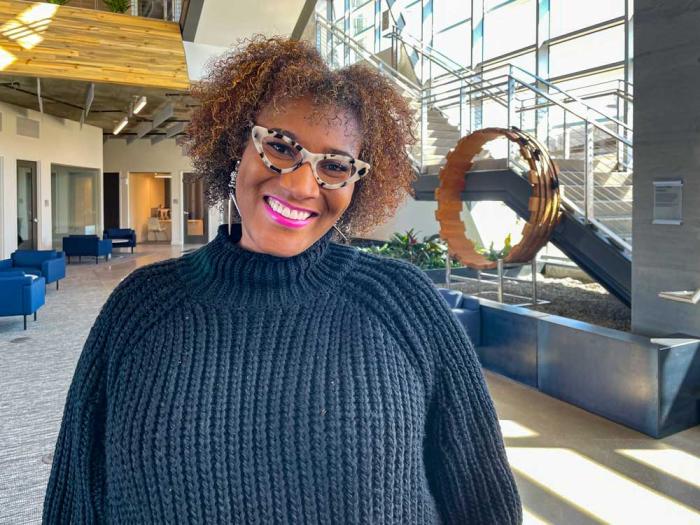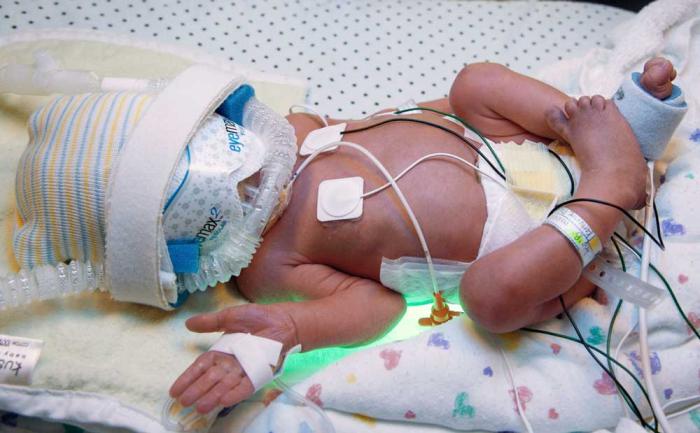Off-the-clock: Helping the smallest ones in her community
Here’s a sobering statistic: One out of every 10 babies in the United States is born prematurely.
The Centers for Disease Control and Prevention estimates that 9% of those preterm babies are born to white or Hispanic women.
But for Black women? The number is a little over 14%. That’s a 50% higher chance of delivering their child early.
When Mekida Wilson, a human resources specialist who joined Denver Water in 2021, realized this was such a large issue in her community, she jumped in to help support these families and their babies.
“Being a new parent is challenging enough. Being a parent to a premature baby requires a completely different set of resources,” Wilson said. “This is about networking and helping people who need answers to their questions during a stressful time, and it’s a labor of love.”
Wilson spent years volunteering with a nonprofit that supports families with premature babies, until the nonprofit dissolved when the pandemic made it difficult to work in person with families and their fragile children.
Wilson, who aims to raise awareness about these families’ need for support, estimates that the foundation was able to help between 7,000 and 10,000 babies and families over the years.
“We did so much, and there’s more work that needs to be done. Those babies are little fighters, and they are our future,” Wilson said.
“I want to make a change or difference, and even if I can’t get the baton and run with it right now, acknowledging the need is important. It’s about helping people have peace of mind and that’s what I strive to do. We’re all connected.”
Learn more about working at Denver Water.
Wilson’s volunteer work built on her longtime passion for making baby gifts and helping people in her community.
In 2015, she realized she could combine the two after hearing Barb Deloian, a retired nurse, talk about Deloian’s nonprofit foundation that helped parents of premature babies transition from hospital to home.
“I’ve always loved making gifts, especially baby gifts, to the point that my friends love to call me the Black Martha Stewart because I’m always making things,” Wilson said.
While listening to Deloian, she realized she could provide special gifts — and so much more.
“I immediately introduced myself to Barb to tell her what I do, and I asked what I could do to help her,” Wilson said. “Barb said I was a godsend. She’d been looking for someone like me.”
Here’s why: Many preemies spend weeks or months in neonatal intensive care units, often referred to as NICUs.
When these babies are discharged from the hospital, their families go from having a team of nurses and doctors an arm’s length away to being on their own caring for a newborn with often complex needs.
“A trip to the grocery store can include an oxygen tank and additional medical equipment.”
— Mekida Wilson
The challenge can be even more overwhelming for Black families, Wilson said, which is why it’s critical to have a woman from the Black community help mothers during a stressful time.
“Since Black women have the highest percentage of premature birth rates, it’s really important to find people who look like us because there’s a trust factor there,” Wilson said.
“Going into a community of color, there are people who will be skeptical about the information they receive if they don’t see themselves reflected in the person giving them that information.”
While doctors are trying to determine why mothers go into premature labor, some of the factors listed by the CDC relate to social, personal and economic situations, stress and race.
Wilson said fear, financial burdens and access to health care also are major issues.
“Working in human resources, I know medical and wellness benefits are a game changer,” Wilson said. “I’ve seen parents make life and medical decisions based on financial circumstances, which can have a negative trickle effect as an expectant parent. It’s a risk to the baby and to the family.”
As someone who provided support to families through her volunteer work and helped them plan for the future, Wilson knew how important it was for them to trust her.
Wilson said trust is important when working with communities struggling with cultural challenges or language barriers — or immigrant families navigating a challenging health care system.
“Some immigrant families rely solely on their tight-knit communities and don’t know about other avenues for help,” Wilson said.
“Colorado has a big Ethiopian community with a growing population in southeast Denver, and there can be a language barrier that makes it difficult for them to find resources,” Wilson said. “It was my role to create awareness to the Black and African American communities about available services for families with premature babies.”
The resources required for families with premature babies can be staggering, Wilson said.
“A trip to the grocery store can include an oxygen tank and additional medical equipment, which can be completely overwhelming to manage,” said Wilson. “It’s even more challenging if you’re a single parent and don’t have anyone to help. There’s so many needs to be addressed.”
Wilson helped educate families on how to successfully go from hospital life to home life. She helped families develop lists of who to call when they had questions, taught them how to handle an emergency, and helped find transportation options to get back and forth to the hospital.
“When families get home, reality hits because that baby has been cared for months by health care professionals,” Wilson said. “Now, it’s all on the family. It can be incredibly stressful.”
Meet more Denver Water employees and learn about their passions off-the-clock.
Even if she didn’t exactly know how to help the families, an attitude of openness and cooperation were enough to start with, Wilson said.
“My philosophy is that I don’t know everything, but I know together, we’ll figure it out,” Wilson said.
If a mother had a traumatic birth, Wilson helped with post-partum issues and would find the mother counseling services. The nonprofit was able to provide this support through its extensive network.
“It was such a gift to volunteer with an organization that formed decadeslong relationships with hospitals and nurses who really wanted this community resource to support parents and smooth the way home,” Wilson said.
When the COVID-19 pandemic impacted the foundation’s ability to work with families, Wilson said the nonprofit dissolved and combined its services with another regional organization.
But most of the necessary in-person work had to stop.
“You can’t do a Zoom call with a parent in a NICU, and I worry that the need for these families is greater now,” Wilson said.
Before the pandemic started, the foundation was working with hospitals to develop a new way to get information to the community.
“The need didn’t go away because we haven’t been able to be there,” Wilson said.
“We’re finding out how to navigate in this new normal.”



